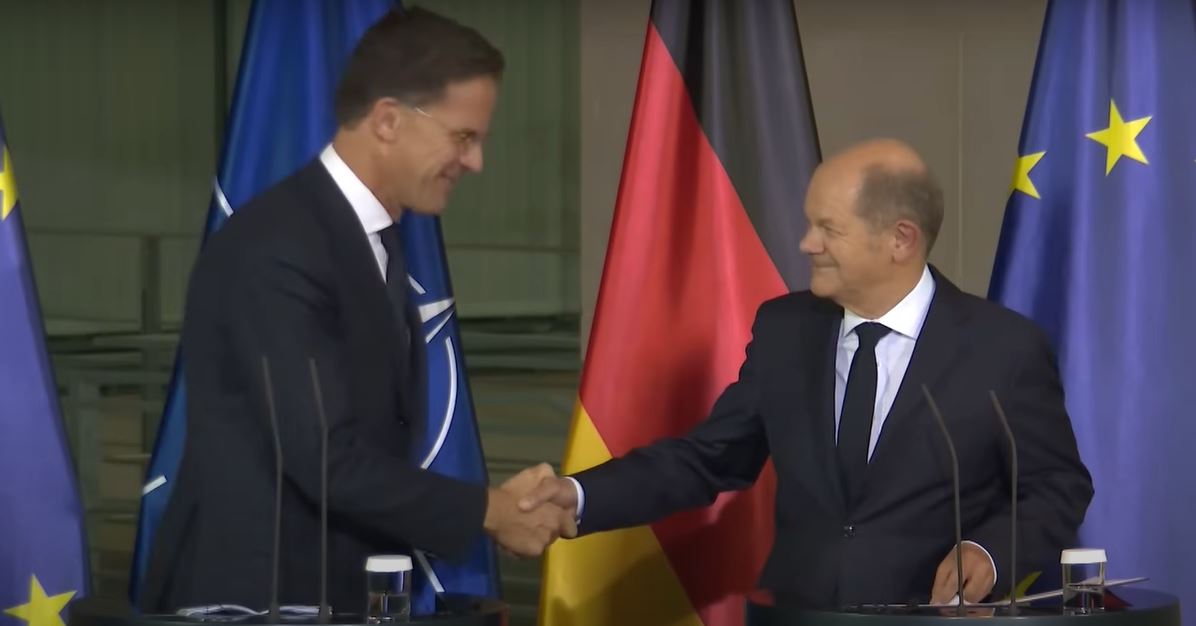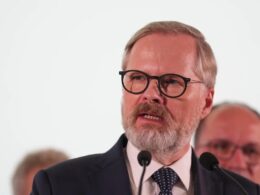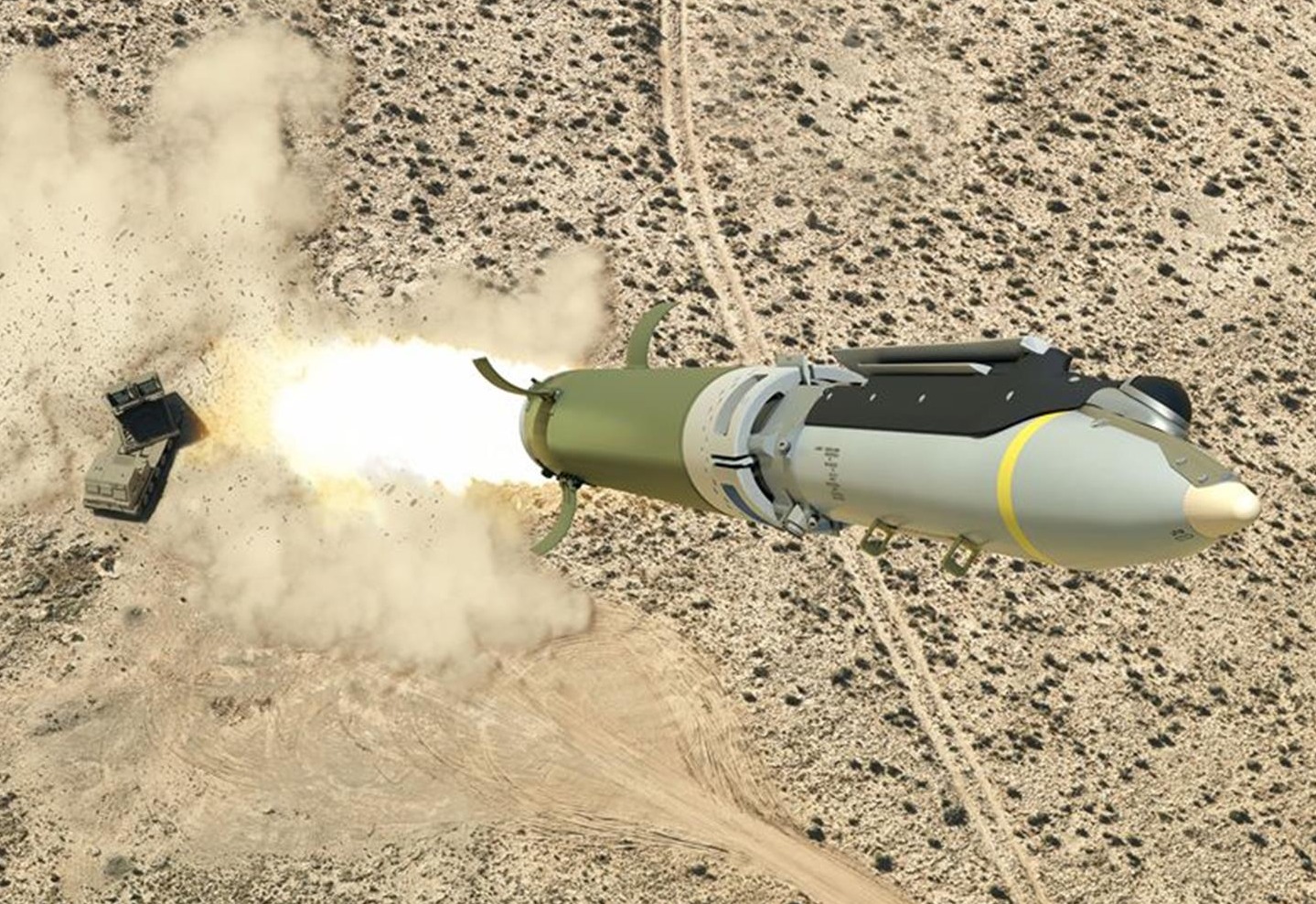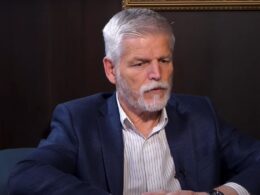NATO Secretary-General Mark Rutte and German Chancellor Olaf Scholz held a joint press conference in Berlin on 4 November, where they discussed NATO's ongoing support for Ukraine, particularly as the war with Russia intensifies, according to Voice of America.
Highlighting that NATO now faces an expanded frontline extending beyond Ukraine into regions such as the Baltic and Western Europe, Rutte warned:
“If Putin wins in Ukraine, he won’t stop there,” he said. “Russia is conducting already an intensifying campaign of hybrid attacks across our Allied territories interfering directly in our democracies sabotaging industry and committing violence, all of this to weaken us and to sow division .”
He underscored NATO’s readiness to confront these threats across all domains: land, sea, air, space, and cyberspace.
Rutte also praised Germany’s significant contributions to Ukraine's desense, stating,
“Germany has now spent $28 billion in military aid going into Ukraine and is with that sum the second-biggest contributor in Ukraine next to the United States. And we have to continue doing this. We have to make sure that our defense production is ramped up. We have to make sure that Ukraine can prevail, that Putin will not get his way in Ukraine.”
At the same time, Chancellor Scholz reiterated his opposition to an immediate invitation to NATO for Ukraine, resisting any new NATO membership steps for Ukraine. He expressed satisfaction with decisions already made at the NATO summits in Vilnius and Washington, which he feels align with the current situation.
Scholz asserted,
“I don't see any new need for further decisions. The situation is identical to what it was like when we took these decisions,” he said, while reaffirming Germany’s commitment to supporting Ukraine, emphasizing that “we" must ensure "in practical ways that Ukraine does not run out of weapons and armaments.”
Scholz’s cautious stance on NATO membership was met with criticism, particularly from retired US Lieutenant General Ben Hodges, former commander of US Army Europe. Hodges commented on X,
“I don't want to hear any German politician say "never again" if Bundeskanzler Scholz represents how most Germans actually feel about Ukraine and Russia. Germany is losing the moral authority it earned over the last 75 years with its appeasement and failure to stand up to Russia.”
Further critiques emerged from political analysts who argue that Germany’s reluctance could hinder Ukraine’s NATO aspirations, with some Berlin officials reportedly suggesting a “neutral” status for Ukraine, akin to Finland’s past model.
During the briefing, Rutte also addressed reports of North Korean troops in Russia, describing it as a “significant escalation.”
He emphasized,
“[This deployment] makes us even more focused and determined to make sure that Ukraine has what it needs to fight off the Russians, including the North Koreans.”
Secretary General Rutte added that NATO is coordinating closely with Indo-Pacific partners to maintain both Euro-Atlantic and regional security amidst these developments.
Regarding Ukraine's path to NATO membership, Rutte concluded,
“This (support for Ukraine and bilateral security pacts, - Ed.) all together constitutes the bridge to NATO membership in the longer term. And I'm absolutely convinced that one day Ukraine will be a member of NATO."
Related:
- Australia pledges additional patrol boats to strengthen Ukraine’s coastal defense
- 100+ officials, experts warn of 1938 Munich-like betrayal of Ukraine as US votes
- Canadian Foreign Minister Joly says Canada backs Ukraine’s path to NATO membership
- Euroactiv: Finland urges Germany to lose reservations on Ukraine
- Politico: Hungary flirts with Putin and snubs NATO meeting, situation reaching boiling point
- Yes, Ukraine can win the war – ex-minister decodes victory plan
- NYT: Limited Western backing forces Ukraine to search for Plan B
- Germany pledges €1.4 billion military aid package to Ukraine by year-end





